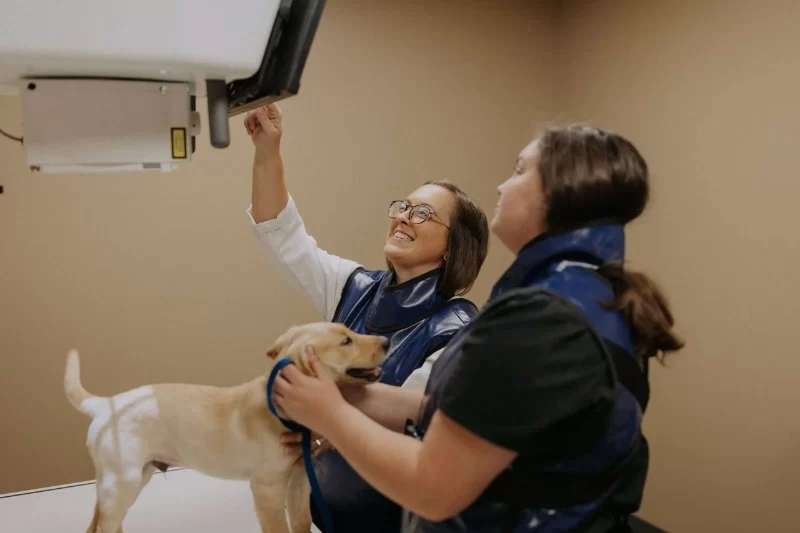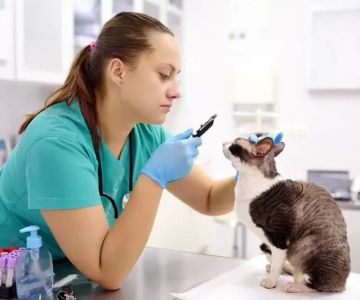How Long Does It Take to Complete a Veterinary Degree?
- 1. The Educational Path to Becoming a Veterinarian
- 2. Key Factors Influencing the Duration of a Veterinary Degree
- 3. Steps and Requirements for Admission to Veterinary School
- 4. A Typical Veterinary School Timeline
- 5. Post-Graduation Training and Licensing
1. The Educational Path to Becoming a Veterinarian
Becoming a veterinarian is a rewarding career, but it’s also a long and challenging educational journey. If you're wondering how long a veterinary degree takes, the typical path includes multiple years of undergraduate education followed by veterinary school. Let's break it down step by step to give you a clear understanding of what to expect.
2. Key Factors Influencing the Duration of a Veterinary Degree
The duration of a veterinary degree depends on several factors. These factors include your undergraduate education, the specific veterinary program, and the country where you are studying. Most aspiring veterinarians begin by earning a bachelor's degree before applying to veterinary school. This bachelor’s degree typically takes 3 to 4 years to complete and often includes a focus on biology, chemistry, and animal science.
2.1 The Length of the Veterinary School Program
After completing the undergraduate portion, students typically spend 4 years in veterinary school. During these 4 years, you’ll study various subjects such as animal anatomy, physiology, pharmacology, and clinical skills. However, in some cases, students may be able to combine their studies with internships or specialized training, which can impact the overall duration.
2.2 Specialization and Advanced Degrees
If you choose to specialize in a particular area of veterinary medicine, such as surgery, dermatology, or neurology, this will require additional training. Residency programs for specialization can last anywhere from 3 to 5 years, depending on the field. While specialization is not required to practice as a veterinarian, it can lead to greater expertise and career opportunities.
3. Steps and Requirements for Admission to Veterinary School
Admission to veterinary school is competitive, and each program has its own set of requirements. Before applying to a veterinary program, you will need to complete an undergraduate degree with a focus on sciences, particularly biology and chemistry. Some schools may also require a certain amount of animal experience, such as volunteering or working with animals in a veterinary clinic or farm.
3.1 Standardized Tests and Application Process
Most veterinary schools require the Graduate Record Examination (GRE), although some schools have different testing requirements. You’ll also need to submit a detailed application, including your academic transcripts, letters of recommendation, and possibly a personal statement explaining your passion for veterinary medicine.
3.2 Gaining Experience and Networking
In addition to your academic qualifications, gaining experience working with animals is essential for being accepted into a veterinary program. Many veterinary schools look for applicants who have hands-on experience in the field, which is why internships, shadowing veterinarians, or volunteering with animal shelters is highly recommended.
4. A Typical Veterinary School Timeline
Once accepted into veterinary school, the typical timeline is as follows:
4.1 First Two Years
The first two years of veterinary school are generally focused on classroom learning, where you’ll study foundational topics like biology, pathology, pharmacology, and animal behavior. These years are mostly lecture-based with some hands-on lab work.
4.2 Final Two Years
The last two years of veterinary school are more hands-on, as you begin clinical rotations. These rotations give you the opportunity to work with real patients in veterinary clinics and hospitals, under the supervision of experienced veterinarians. This is where you’ll hone your skills in diagnosing, treating, and caring for animals.
5. Post-Graduation Training and Licensing
After graduating from veterinary school, you’ll need to pass a licensing exam before you can practice as a veterinarian. The licensing process varies by country or state, but typically includes the North American Veterinary Licensing Examination (NAVLE) for those in the U.S. In addition, you may need to complete continuing education or training to maintain your license.
5.1 Internship and Residency Programs
If you wish to specialize in a particular area of veterinary medicine, you may choose to pursue an internship or residency program. These programs can take 1 to 5 additional years to complete, depending on the specialty. While it’s not mandatory, specialization can lead to higher-paying jobs and more advanced positions in the veterinary field.
5.2 Career Opportunities
Once licensed, veterinarians have a wide range of career options, including working in private practice, research, government, or teaching. You can choose to work in various fields such as small animal practice, large animal practice, zoo medicine, or public health. The possibilities are vast for those who are passionate about animal care.
Conclusion
Becoming a veterinarian is a rewarding journey that requires dedication, time, and a passion for animal care. In total, it usually takes about 7 to 8 years to complete your veterinary education, including undergraduate studies and veterinary school. However, for those looking to specialize, it could take several more years. If you're ready to embark on this challenging but fulfilling career path, start by gaining the necessary experience and applying to the right veterinary schools. With hard work and determination, you'll be on your way to a successful career in veterinary medicine.












